How To Germinate Seeds Like A Pro: Best Methods For Faster, Healthier Sprouts
Learn tried-and-tested ways to germinate seeds, including expert techniques to speed up growth and ensure your plants have the healthiest possible start.

Melanie Griffiths
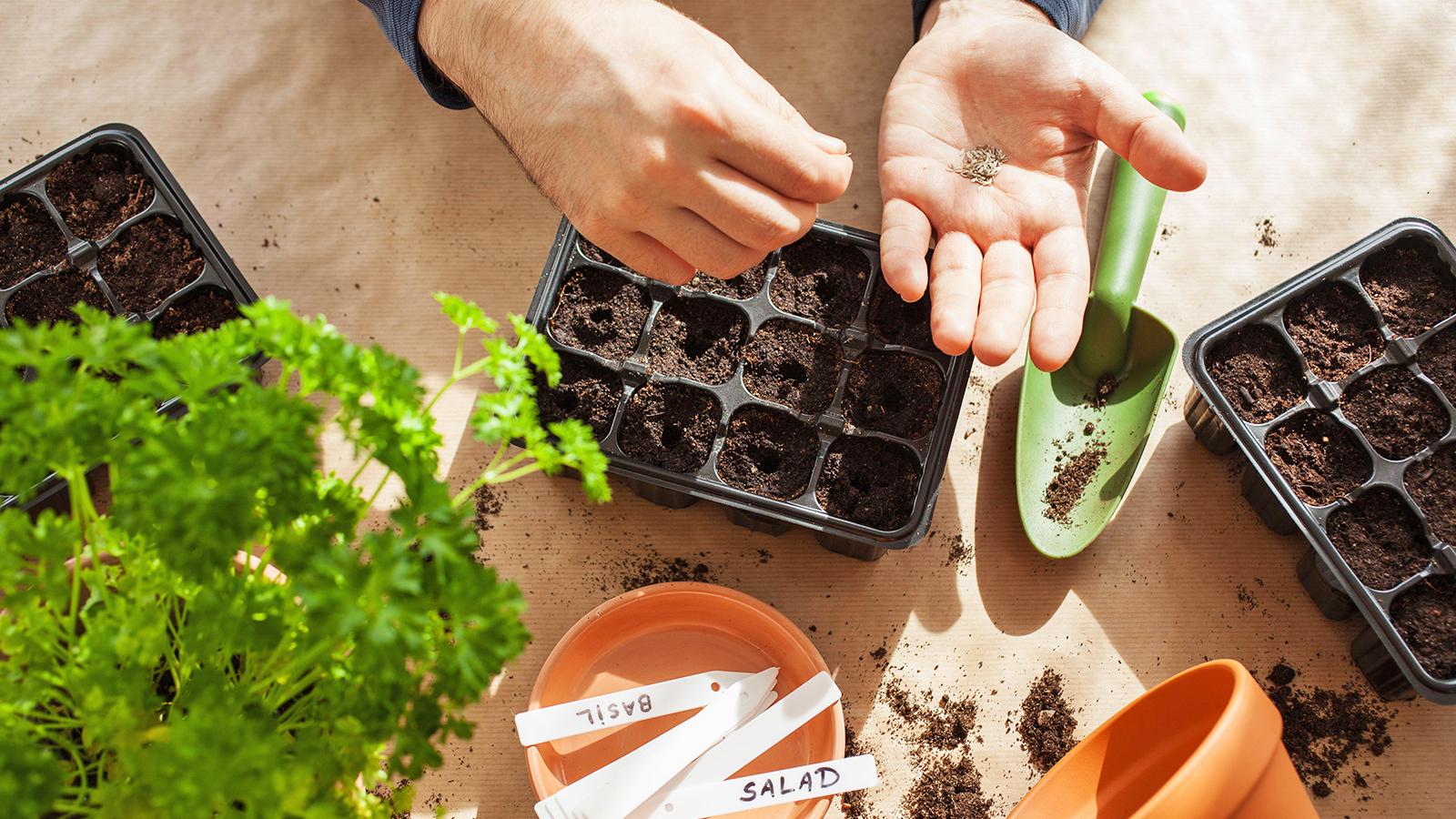
- What Do Seeds Need to Germinate?
- How to Germinate Seeds – Top Methods
- 1. Plant in Seed-Starting Mix
- 2. Paper Towel Method
- 3. Agar Growing Medium
- 4. Sponge Method
- 5. Starting Seeds in Water
- Treating Seeds Before Germinating
- How Long Does it Take for Seeds to Germinate?
- Ideal Seed Germination Temperature
- Seeds Not Germinating
- How to Plant Germinated Seeds
- Common Problems When Germinating Seeds
Sign up for the Gardening Know How newsletter today and receive a free copy of our e-book "How to Grow Delicious Tomatoes".
You are now subscribed
Your newsletter sign-up was successful
Knowing how to germinate seeds efficiently and quickly is an essential skill for all gardeners to master. Starting plants from seed opens up a world of growing possibilities and allows for a head start on the season. Even tender plants can be started indoors in winter and early spring, while it’s still too cold outside.
When planting seeds, germination will only occur when they are provided with enough warmth and moisture. This awakens the seed from dormancy and allows the embryo inside to emerge from its protective seed coat. The embryo is surrounded by endosperm, which provides the baby plant’s first food. When the little shoot breaks through the seed it has cotyledons – the first two leaves – which allow photosynthesis to begin, and the seed to develop into a plant.
The best way to germinate seeds will depend upon the type of plant, your climate, the time of year, and other factors. Germinating seeds can be done simply by planting them in soil. However, some seeds with thicker outer material will need special treatment to soften the tough coating and help the embryo break out.
What Do Seeds Need to Germinate?
Seeds have several requirements to germinate. In particular, gardeners need to provide enough water and the optimal temperature range. However, some seeds are particular about needing sunlight and will fail if not planted to the correct depth. Every plant seed is different, so check the seed packet information for details on your chosen varieties.
- Moisture
Water is the most important requirement for seed starting – without it, the seed will stay dormant. Every plant seed is different in the amount of moisture it needs to soften the seed coat. Some plants can sprout in nearly drought conditions, while others will need to be soaked. However, too much water and seeds will rot, so drainage is essential. - Temperature
Similarly, the optimum temperatures for germinating seeds indoors and outside will vary by plant type. For instance, tomato seeds must be between 70 and 95°F (21 and 35°C) to germinate, but spinach seeds will only germinate between 45 and 75°F (7 and 24°C). - Oxygen
Seeds need access to oxygen, which is one reason soaked soil is counterproductive. It blocks this access. Soil should have a medium texture, not too packed or too light, to provide oxygen to germinating seeds. - Light
Only a very few varieties of plants have seeds that need light. These tend to be smaller seeds that need to be scattered across the top of the potting mix. However, seedling light requirements ramp up once the embryo has emerged. - Planting Depth
How deep to plant seeds varies depending on seed size. A seed has a set amount of energy stored, and if it uses it all up before the cotyledons reach the surface and can access light, the seed will fail. Larger seeds need more depth to get rooted.
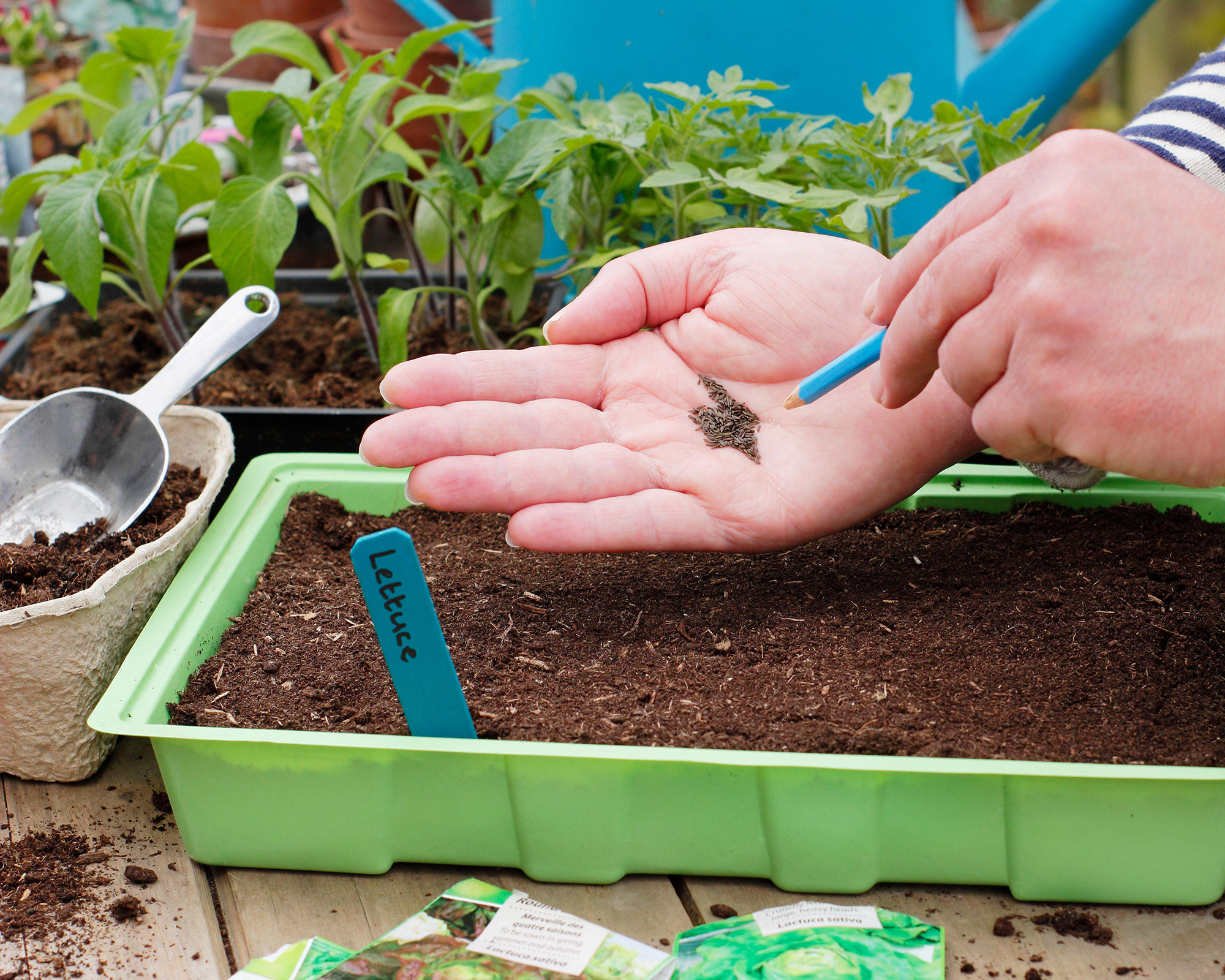
How to Germinate Seeds – Top Methods
For many of our most commonly grown plants, you can direct sow seeds into the ground once all danger of frost has passed and the soil has warmed. Keep the soil moist and at least some of the seeds should sprout. However, for a higher success rate and quicker results, starting seeds indoors is a better solution for many gardeners.
Here are some tried-and-tested solutions for germinating seeds that, when used correctly, may result in faster sprouting and better plant development than direct sowing.
1. Plant in Seed-Starting Mix
Planting seeds into pots or trays filled with seed-starting mix is the most common option, and is similar to growing in soil – except the process has been refined to improve germination rates. Commercially available mixtures are formulated with a light texture to give the seeds room to develop roots, yet they are designed to hold enough moisture and heat to support germination.
Sign up for the Gardening Know How newsletter today and receive a free copy of our e-book "How to Grow Delicious Tomatoes".
A good-quality seed-starting mix may contain perlite, which expands to keep the mixture light and fluffy. Vermiculite may also be part of the mixture, which will retain both warmth and moisture. Peat moss is another common ingredient that will hold water and create a light, airy soil. In addition, the mixture may contain coco coir, compost, worm castings, and even mycorrhizae.
Keep the seed mix evenly moist but not soggy. Covering the seed tray with a humidity dome will help keep in moisture. It is advisable to remove the cover once per day to check the soil moisture level and allow excess moisture to escape.
While having the right kit makes life a lot easier when starting seeds, DIY solutions can also be effective and inexpensive – try starting seeds in egg cartons or milk jugs.
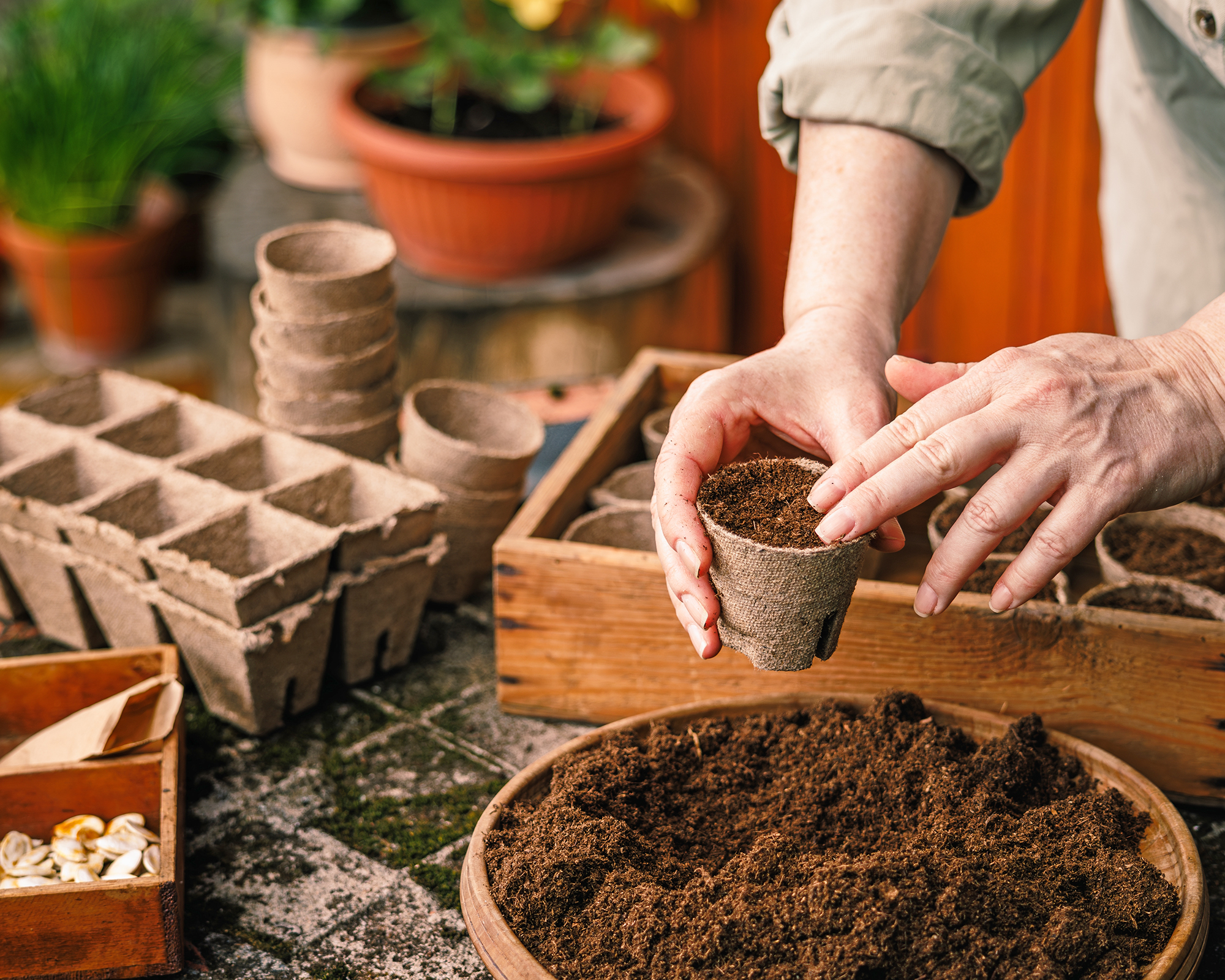
2. Paper Towel Method
To speed up sprouting, try germinating seeds in paper towel. It's a simple, mess-free solution, as it doesn't use any soil or seed-starting mix. Simply dampen the towel and squeeze out excess moisture. Set the seeds on the towel and fold it lightly over the seed.
To keep the towel evenly moist, place it in a plastic bag or container, which will act like a tiny greenhouse. Set it where temperatures are warm or on a seed starter mat. On top of the refrigerator is a great location since it remains warm as the unit cycles on and off.
Keep an eye on the towel to make sure it stays moist. Open the bag every day to allow built-up condensation to escape and prevent fungal disease. Mist the towel when necessary and check inside occasionally to see if the seed has sprouted.
Once the seeds have sprouted, they can be carefully picked off the paper towel and potted into individual containers. Alternatively, you can tear the paper towel into pieces and plant each section separately.
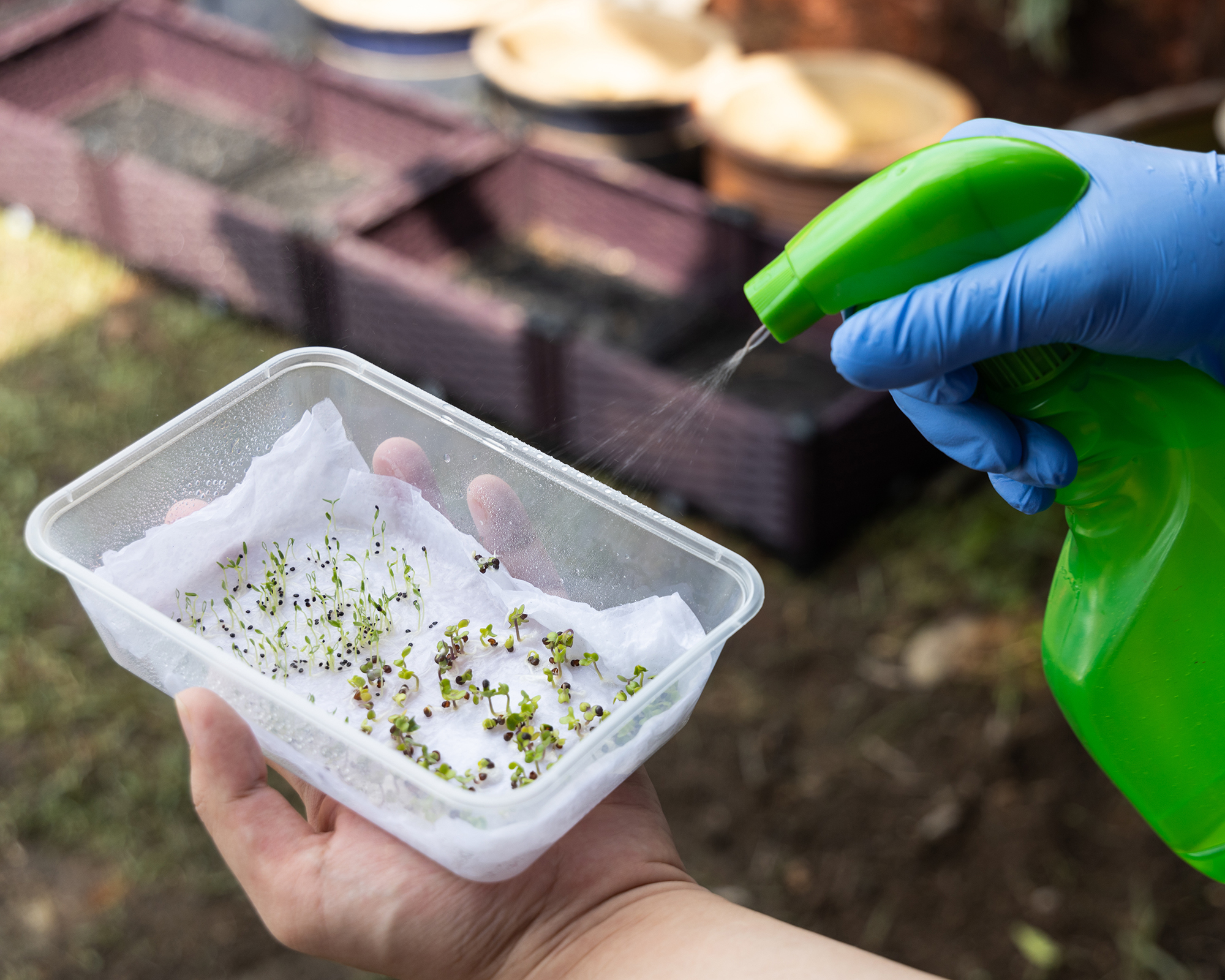
3. Agar Growing Medium
For sensitive seeds that need to be grown in a sterile environment, try an agar growing medium. This nutrient-dense material is a wonderful seed-starting agent, widely used by botanists because it speeds up germination and keeps out bacteria. It's the best option for growing orchids from seed but can also be used for many other plants.
Measure the appropriate amount of agar powder and water and heat until the powder dissolves. Pour this into a sterile, shallow container. The seeds will be sown on the surface of the gelled agar. They may be treated to a bleach bath to sterilize them if necessary. Cover the container with plastic or a clear lid and place it in a warm location. Check frequently for germination and root development.
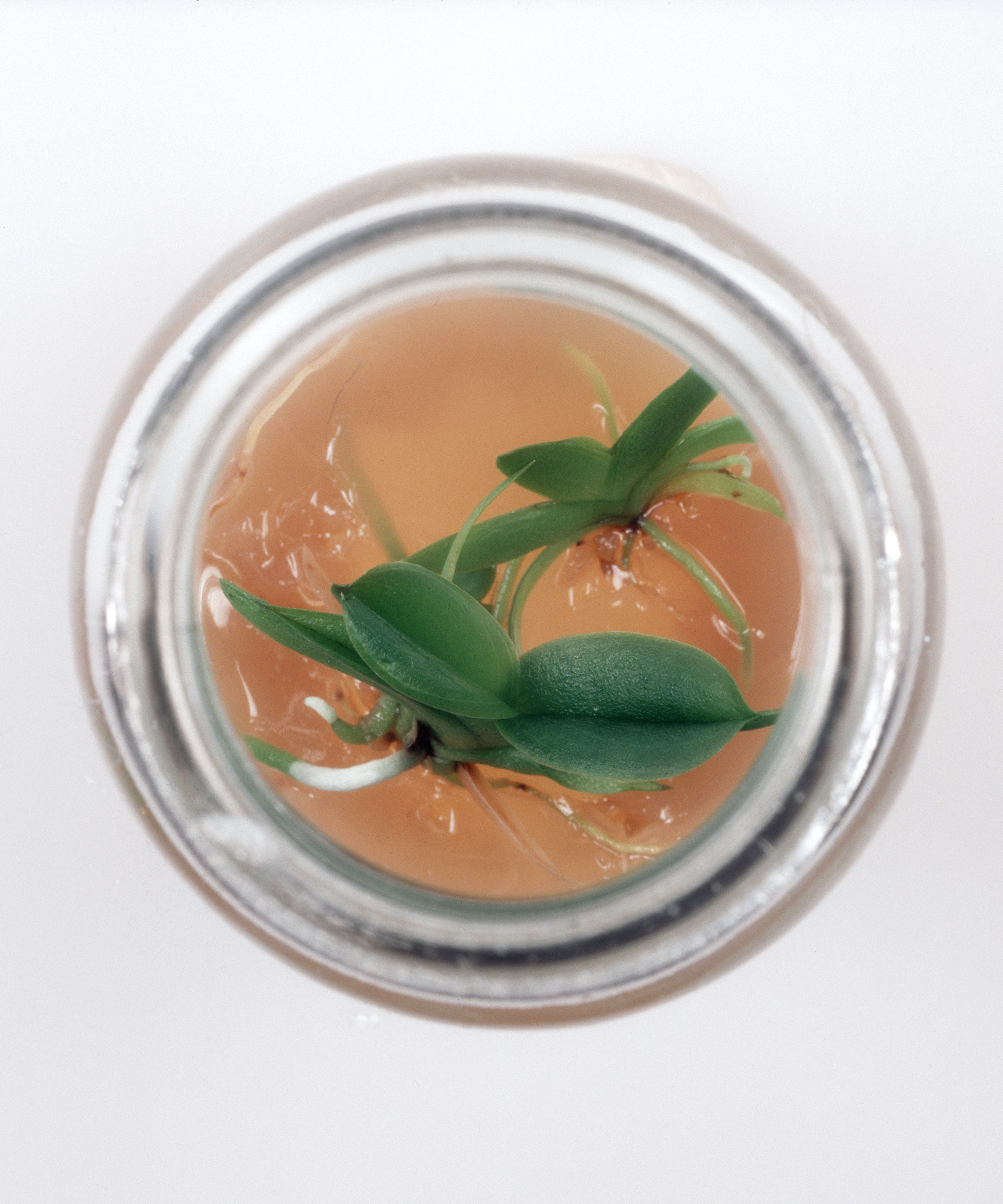
4. Sponge Method
For seeds that germinate quickly such as radishes, try growing seeds in a sponge – which is fun, easy, and mess-free. Use a clean, unused sponge and moisten it thoroughly. Tuck the seed into the nooks and crannies in the sponge. Cover the sponge in plastic wrap or place it in a container or bag. Keep the sponge moist and watch for seed germination.
To plant your seedlings, you can remove them from the sponge and pot up in a container or outdoor bed. Alternatively, if the roots are too attached to the sponge, then trim the sponge down and plant with the roots still attached.
5. Starting Seeds in Water
Germinating seeds in water is possible with certain seeds, although it's more common practice to simply soak them for a while before planting. Hydroponic seed starting works for many herb and vegetable seeds. Usually, a seed-starting medium like rockwool or coco coir is used to allow roots to develop, but you can also sprinkle the seeds directly into a shallow container of fresh water.
Place the containers somewhere warm, such as on top of a seedling heating mat, and once the seeds have sprouted – which will happen in as little as a few days – gently transplant them into individual pots.
Treating Seeds Before Germinating
Since every seed is different, their germination needs are also different. Many seeds need a dormant cold period before they will sprout. The name for this is stratification. This is usually several months of cold during which the seed is nearly inert but it could occur even in favorable growing conditions. Once warm temperatures and moisture arrive, this signals the germination process for the seed. To stratify seeds, the most common method is to freeze or refrigerate them before planting.
Other seeds have such thick seed coats they will benefit from penetrating the seed coat in a process known as scarification. Much as it sounds, you are simply creating a small breach in the seed coat so water and oxygen can more easily penetrate. The most common methods to scarify seeds are by nicking seeds or scratching them with sandpaper. However, boiling or using sulfuric acid are options for some seeds.
Many hard-coated seeds benefit from soaking in water to soften the hard coat and speed up germination. To soak seeds before planting, drop them into a cup of water. You'll need to do this for several hours, up to 24 hours, to get maximum benefit.
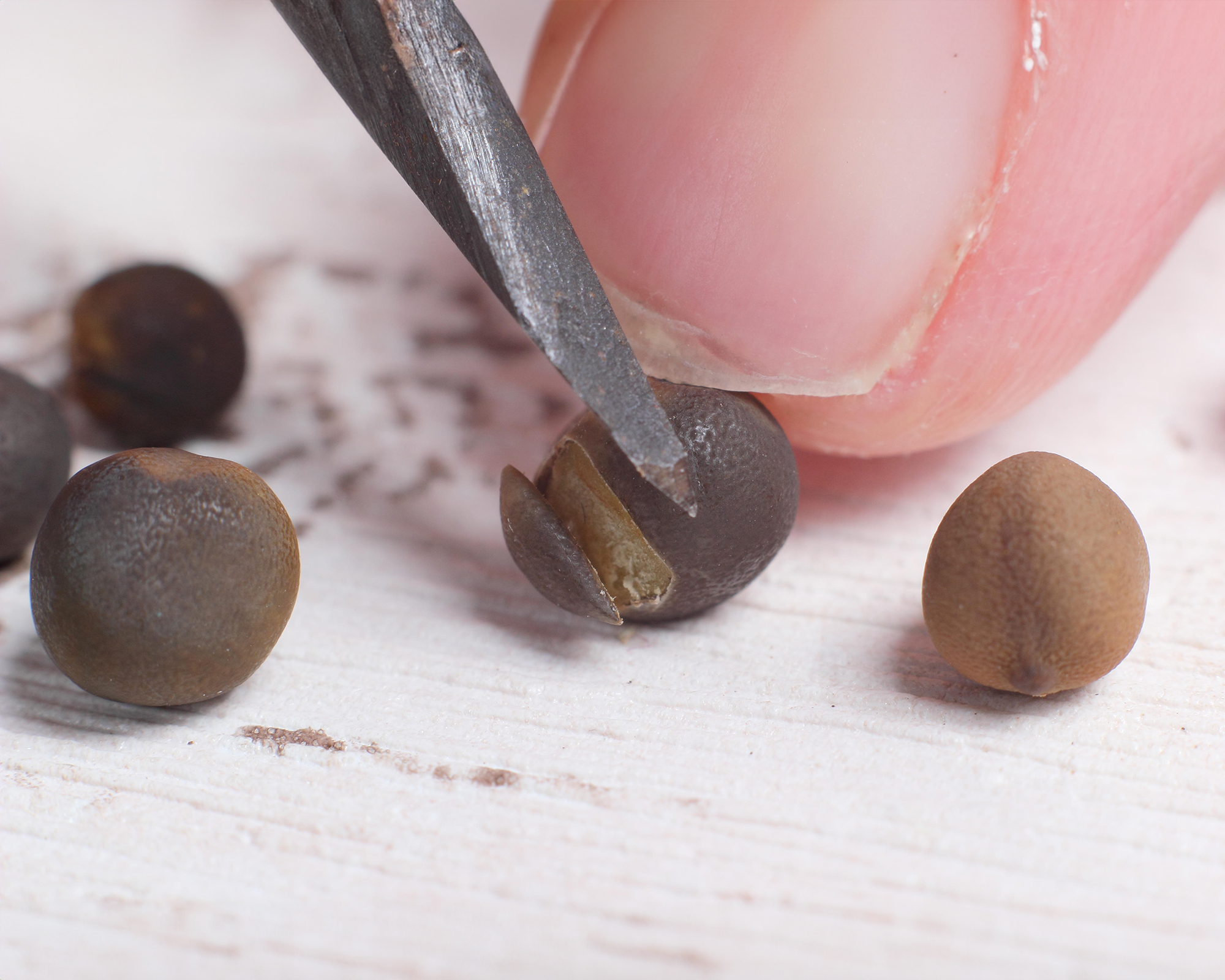
How Long Does it Take for Seeds to Germinate?
Germination time is dependent on the type of seed, planting method, and environmental factors such as temperature. Germinating seeds in soil may result in slower germination than in a controlled planting process in the home or when starting seeds in a greenhouse.
Commercially available seed packets will indicate the amount of time to expect maturity but often fail to tell you when to expect germination. Many common produce seeds will germinate in 1-2 weeks if not sooner, Tropical fruits can take a month or more. Some seeds like lettuce and radishes will sprout in just days. If you find seeds not germinating in a couple of weeks, it could be bad seed or improper environmental conditions.
Ideal Seed Germination Temperature
Seed germination temperatures generally range from 70 to 80°F (21 to 27°C) but many seeds will sprout in colder temperatures. Cool-season crops like many lettuces, snow peas, and spring onions will germinate in temperatures as low as 40°F (4.5°C). But as a rule, most seeds prefer warmth to germinate.
Seeds Not Germinating
If you find your seeds not germinating, check moisture and temperature levels. Also, prior to planting, investigate the seed. Seeds with dark marks or soft spots are not good for germination.
One of the most common seed viability tests is to simply place the seeds in water. Any seed that floats is considered not viable and should be discarded. However, it's really only a reliable test for large seeds. For small seeds, the damp paper towel method is more effective.
Still waiting and wondering when to give up on seed germination? Only you can determine the level of your patience but if the seed is a produce variety and has not germinated in a few weeks, it is likely not viable.
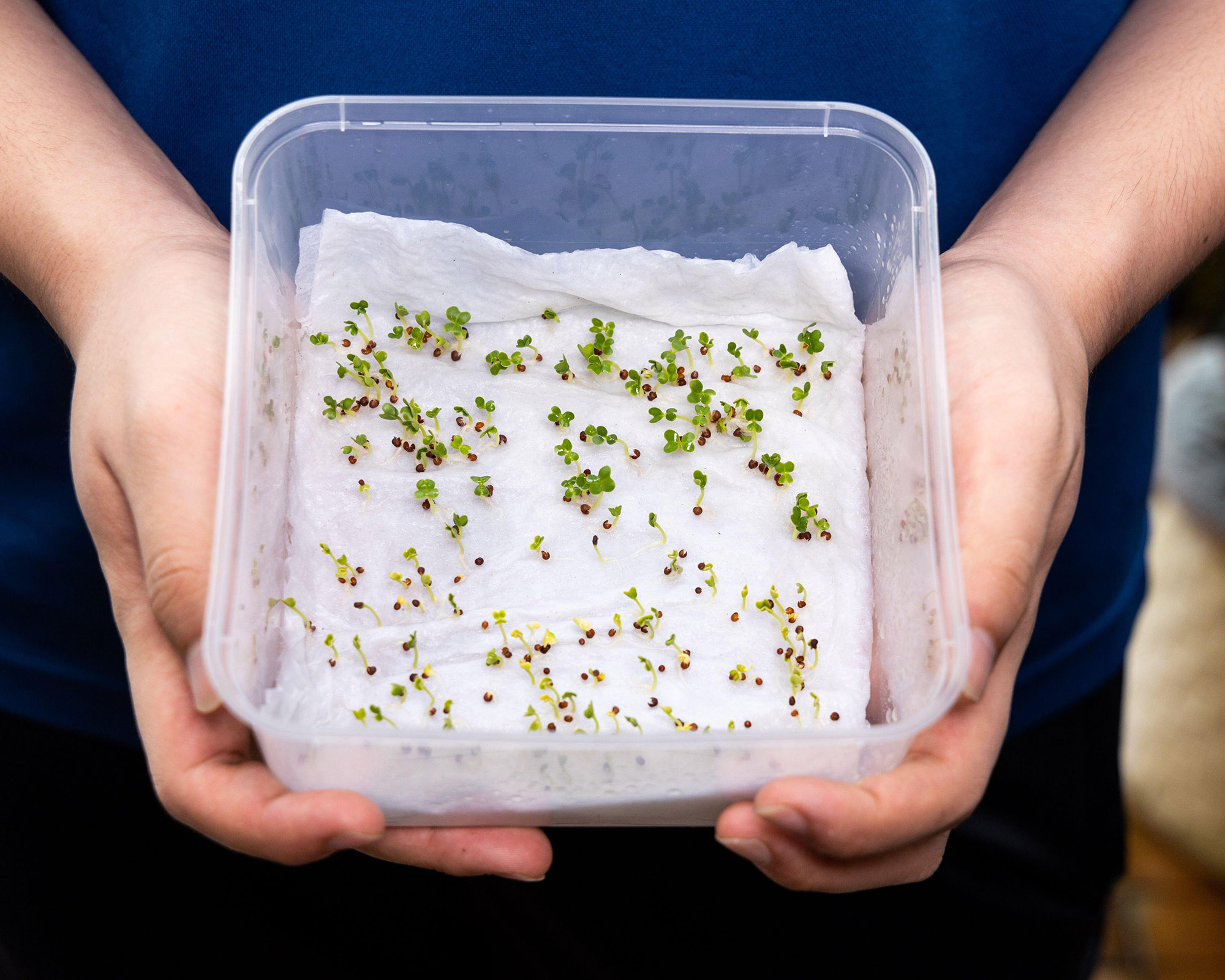
How to Plant Germinated Seeds
You will want to wait until the seed has begun to produce several tiny roots and a couple of true leaves before you plant your new seedling. Transplant seedlings very carefully since the new roots are very delicate.
Prepare the planting site and gently remove the seedlings from the container. Use a pencil or similar item to pre-make the hole for the tiny roots. Gently push soil around the roots and water in the little plant. If they were started indoors, make sure to harden off seedlings prior to planting outside.
Common Problems When Germinating Seeds
There are numerous reasons why seeds and seedlings fail – most are preventable. Key problems to avoid and watch for include:
- Too little water will prevent the seed coating from softening and the embryo will not emerge. The seed must remain consistently moist to avoid disrupting the germination process.
- Too much water can result in the seeds rotting.
- Heavy soil will prevent water from draining through and will not provide a light, airy growing medium for the delicate new seedlings to grow.
- Temperatures that are too cool will not activate the germination process for certain seeds, although some varieties will sprout at lower temperatures.
- Bad seed will not sprout with any method. Perform a seed viability test to check the batch. Storing seeds correctly will extend their lifespan.
- Starting seeds too early can doom them to fail. For tender plants, work about 6-8 weeks backward from your last frost date.
- Failure to break the seed coat can be an issue when seeds require scarification or soaking before planting.
- Fungal disease can cause seeds and seedlings to fail. To control fungus in seed trays, sterilize equipment before planting and ensure some air flow. In humid areas, a fan is helpful.
- Fungus gnats can be a nuisance for some growers. While the adults are harmless, their larvae can damage seedlings. Avoid overwatering, as they are attracted to soggy soil, and use traps where they become a problem.
- Damping off is a common soil-borne fungal disease that proves fatal for seeds and young seedlings. Minimize the risk by using sterilized containers, well-draining seed-starting mix, avoiding underwatering, and providing ventilation. Learn how to thin seedlings to prevent overcrowding, which contributes to the problem.
More Growing Inspiration
- Struggling to grow? Fix these 7 seed-starting mistakes before it's too late.
- Not sure how often to water seedlings? Discover the best schedule for healthy growth.
- Discover the easiest herbs to grow from seed with 8 beginner-friendly edibles anyone can grow.
- Get the latest growing inspiration and ideas straight to your inbox by signing up for the Gardening Know How newsletter.

Bonnie Grant is a professional landscaper with a Certification in Urban Gardening. She has been gardening and writing for 15 years. A former professional chef, she has a passion for edible landscaping.
- Melanie GriffithsEditor in Chief